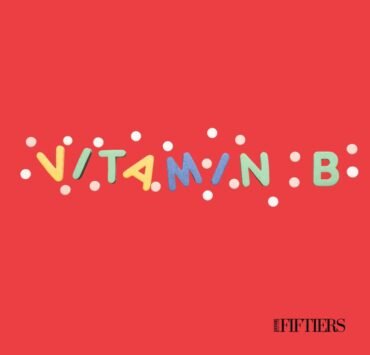Why Do We Need Nutritional Supplements Now More Than Ever?

FIFTIERS | Life Begins at 50. La vida comienza a…
The quality of our diet has been compromised in recent decades, to the point that today it’s possible to be overfed but undernourished. That is, many people consume sufficient (or even excessive) calories but fail to obtain the essential micronutrients the body needs for optimal functioning. Below, we’ll examine the scientific reasons behind the declining nutritional content of modern foods and why supplementation with vitamins, minerals, proteins, antioxidants, adaptogens, and other compounds may be necessary from early ages to maintain good metabolic, immunological, and cognitive health, and to promote healthy aging.
Factors Reducing the Nutritional Quality of Foods
Various factors linked to food production and processing have diminished their nutritional density:
-
Intensive Farming and Depleted Soils: Modern agricultural practices prioritize maximizing crop yield and resilience, often at the expense of nutritional content. Comparative studies reveal “reliable declines” in proteins, calcium, iron, phosphorus, vitamin B₂, and vitamin C in fruit and vegetable crops between 1950 and 1999. This is attributed to soil nutrient depletion and the selection of fast-growing, large-sized varieties that are less nutritious. In fact, each generation of modern crops may be “less good for you than the previous one” due to soil impoverishment. The mineral and vitamin content of fresh vegetables has dropped drastically; for example, between 1975 and 1997, average calcium in 12 vegetables fell by 27% and iron by 37%. In extreme cases, eight oranges are now needed to obtain the same amount of vitamin A as one orange provided in our grandparents’ era. These alarming trends indicate that even with a supposedly “healthy” plant-based diet, we may be consuming fewer micronutrients than in the past.
-
Industrial Food Processing: Much of today’s food undergoes processes that reduce its nutritional value. Grain refining (milling) removes fiber-rich bran and germ, along with B vitamins and minerals, as seen in white flour or white rice production. Though sometimes “enriched” with added nutrients, it’s impossible to restore everything lost—especially beneficial phytochemicals. Other methods like blanching, canning, and high-temperature cooking degrade heat- and oxygen-sensitive vitamins (particularly water-soluble ones like vitamin C and folate). Additionally, heavy use of chemical fertilizers can alter crop composition; for example, high nitrogen doses reduce vitamin C content in fruits and vegetables. The net result of ultra-processing is a food supply with long shelf life and appealing taste but often depleted of micronutrients and fiber. While the food industry frequently adds synthetic nutrients to fortify certain products, this does not fully compensate for the loss of foods’ natural nutritional matrix.
-
Changes in Eating Habits: Modern lifestyles have led to more monotonous and unbalanced diets. Consumption of ultra-processed foods rich in empty calories (sugars, refined flours, and fats) has increased, displacing nutrient-dense foods like fruits, vegetables, and legumes. In countries like the U.S., an estimated 60% of calories come from ultra-processed products of scant nutritional value. These dietary choices create the paradox of populations with abundant food yet insufficient vitamins and minerals. As nutrition researchers note, many people today “consume nutrient-poor diets” that fail to meet micronutrient needs despite caloric surplus. This imbalance contributes to what the literature calls “hidden hunger”: subclinical deficiencies of essential micronutrients that may go unnoticed but compromise long-term health.
Nutritional Deficiencies in Today’s Population
As a consequence of the above factors, micronutrient deficiencies (vitamins and minerals) are astonishingly common even in industrialized societies. A 2024 global study revealed that over half the world’s population fails to consume adequate levels of several essential micronutrients (even accounting for different ages and regions). The most widespread global deficiencies include iodine (affects 68% of the population), vitamin E (67%), calcium (66%), and iron (65%). Additionally, over 50% of people consume below recommended levels of riboflavin (B₂), folate (B₉), vitamin C, and vitamin B₆. Even nutrients with lower insufficiency rates, like niacin (B₃), show inadequate intake in approximately 22% of the global population. These nutritional gaps “compromise health and limit human potential on a global scale”, experts warn.
Notably, deficiencies are not exclusive to low-income countries; they are also observed in developed nations. For example, vitamin D deficiency is nearly endemic due to predominantly indoor lifestyles and sunscreen use: in the United States, up to 40% of adults have insufficient vitamin D levels, and among children and adolescents, insufficiency reaches 61%, with ~9% outright deficient. Similarly, vulnerable groups like women of childbearing age often exhibit high rates of iron deficiency (anemia), folate, or calcium deficiency, while strict vegetarians may lack vitamin B₁₂.
Micronutrient malnutrition carries enormous public health costs. In 2017 alone, deficiencies of essential nutrients contributed to approximately 11 million deaths worldwide, besides causing stunted growth and developmental disorders in millions of children. Despite food availability, our modern diets fail to guarantee all elements necessary for healthy living. Facing this reality, nutritional supplements emerge as an effective tool to bridge the gap between what we eat and what our bodies require.
Importance of Supplementation from Early Ages
Given the prevalence of subclinical deficiencies, experts emphasize that starting supplementation early (childhood, adolescence, or young adulthood) offers significant preventive advantages. Childhood and youth are critical periods when the body builds nutritional “reserves” and establishes lifelong health parameters. Thus, ensuring optimal nutrient intake from an early age helps:
-
Prevent Nutritional Deficiencies and Their Sequelae: During growth, sustained mild deficiency of certain micronutrients can have lasting effects. For example, iron deficiency in early life impairs neurological development and is linked to lower IQ and persistent cognitive issues. Similarly, iodine insufficiency in childhood causes irreversible brain damage and is a leading cause of preventable intellectual disability worldwide. Other nutrients like zinc, vitamin B₁₂, folate, or omega-3 (DHA) play key roles in brain development, and their early lack leads to delays in motor, attention, and memory milestones. Fortunately, numerous clinical trials show that supplementing deficient children partially reverses these impacts: a 12-study analysis found significant cognitive skill improvements in malnourished preschoolers after iron or multi-micronutrient supplementation. Even well-nourished children showed cognitive improvements when increasing fish consumption (an omega-3 source). In summary, starting supplements “as early as possible” ensures no critical developmental period occurs with deficiencies, preventing lifelong consequences for growth, academic performance, and future health.
-
Optimize Metabolic Health and Prevent Chronic Diseases: Optimal nutritional status from youth lays the foundation for healthy metabolism and reduces adult disease risk. For instance, evidence links chronic mild deficiencies of magnesium or vitamin D to higher risks of metabolic syndrome, type 2 diabetes, and cardiovascular diseases. Magnesium is a cofactor in hundreds of metabolic functions (including blood glucose and pressure regulation), and its prolonged deficiency contributes to insulin resistance, hypertension, and chronic inflammation. Epidemiological studies indicate that low magnesium intake is an independent risk factor for type 2 diabetes, while clinical trials show magnesium supplementation improves components of metabolic syndrome, lowering blood pressure and glucose in at-risk individuals. Similarly, adequate vitamin D levels correlate with lower metabolic disorder incidence, as this vitamin (actually a hormone) influences pancreatic function and insulin sensitivity. Ensuring early sufficiency in nutrients like magnesium, vitamin D, B vitamins (crucial for energy metabolism), and omega-3 fatty acids (improving insulin sensitivity and lipid profiles) helps protect against obesity, diabetes, and cardiometabolic diseases later in life. A young person maintaining optimal micronutrient levels will reach middle age with less “nutritional debt” and lower susceptibility to metabolic disorders than one carrying deficiencies since adolescence.
-
Strengthen the Immune System: Proper immune function depends on multiple nutrients. Deficiencies in vitamins A, C, D, E, B₆, B₁₂, folate, zinc, selenium, iron, and protein are known to weaken defenses. Early supplementation reinforces infection resistance and may reduce autoimmune disease risk. A key nutrient is vitamin D, whose receptors exist on immune cells. A systematic review of >10,000 subjects proved vitamin D (D₂ or D₃) supplementation significantly reduces acute respiratory infections in deficient individuals. This protection stems from vitamin D’s immune-modulating effects, promoting antimicrobial peptides (e.g., cathelicidin) and regulating inflammatory cytokines. Other supplements like vitamin C support leukocyte antioxidant barrier function and slightly shorten common cold duration under physical stress. Certain herbal adaptogens also offer immunological benefits: Asian ginseng (Panax ginseng) modulates immune activity. In a study of older adults (50–75 years), ginseng intake for 8–14 weeks increased NK (natural killer) cell activity – an antiviral white blood cell type – by 35–40% versus placebo. Similarly, Withania somnifera (ashwagandha, an Ayurvedic adaptogen) shows “clear immunological effects”, boosting innate antiviral immunity while reducing cortisol (stress hormone) and chronic inflammation. This evidence suggests optimal nutrition with supplemental support builds “immune reserves” from early life, preparing the body for lifelong infectious challenges.
-
Boost Cognitive Development and Brain Performance: The developing brain requires all essential nutrients to form and maintain structures, making childhood/adolescent nutrition critical for cognitive health. Beyond preventing severe deficits (e.g., iron, iodine, zinc), supplementation optimizes brain function even in non-deficient individuals. Long-chain omega-3 fatty acids (DHA/EPA) in fish oil structurally support neuronal membranes and synaptic communication. Research indicates higher omega-3 intake from early stages improves learning, memory, and attention parameters, with longitudinal studies linking it to reduced mild cognitive impairment and dementia risk in later life. B-complex vitamins (folate, B₆, B₁₂) are fundamental for neurotransmitter and myelin synthesis; supplementing young people with suboptimal diets enhances mental clarity and mood while preventing megaloblastic anemia and high homocysteine (a cerebral vascular risk factor). Additionally, certain natural nootropics or adaptogens improve cognition under stress: an ashwagandha extract formulation given for 90 days to young adults with chronic stress resulted in improved memory, concentration, and processing speed, alongside reduced anxiety and enhanced psychological well-being. Collectively, these findings support optimally nourishing the brain – from childhood through adulthood – via diet and supplements to ensure full neurological development, better academic/work performance, and potentially delay age-related cognitive decline.
-
Promote Healthy Aging: While life expectancy has increased, so has the incidence of chronic/degenerative diseases in later life. Nutritional supplementation supports aging with vitality by addressing two fronts: preventing physical decline (muscles, bones, cardiovascular system) and protecting against oxidative stress and neurodegeneration. A crucial aspect is maintaining muscle and bone mass. After age 50, protein needs increase (recommended: ~1.2–1.6 g/kg/day vs. minimum RDI of 0.8 g/kg) to counteract sarcopenia and osteoporosis. Yet many older adults struggle to meet this through diet alone due to reduced appetite or chewing difficulties. Here, protein supplements (e.g., whey or casein) help meet daily requirements and improve muscle strength/functionality when combined with resistance exercise. For bones, nutrients like calcium, vitamin D, and vitamin K₂ are essential for maintaining density and preventing fractures; supplementation is commonly advised from middle age, especially for postmenopausal women at osteoporosis risk.
Conversely, oxidative stress and chronic inflammation contribute to cellular aging and pathologies like cardiovascular disease, cancer, and Alzheimer’s. Dietary antioxidants (vitamins C/E, carotenoids, polyphenols, coenzyme Q10, etc.) neutralize free radicals and may reduce cumulative damage. Experimental evidence in animal models shows high antioxidant vitamin intake can prevent or reverse aging-associated changes in antioxidant defense systems. In humans, though results are mixed, adequate antioxidant supplementation “may prevent aging and many age-related diseases”, especially in those with insufficient dietary antioxidant intake. For example, supplements combining vitamin C/E, zinc, and carotenoids slow age-related macular degeneration progression. Similarly, multivitamin/mineral supplementation at nutritional doses offers subtle but significant long-term benefits: a recent clinical trial (COSMOS study, 2022) found older adults taking daily multivitamins for 3 years had 60% slower cognitive decline versus placebo. Authors estimated this intervention equated to delaying normal cognitive aging by ~1.8 years. While the exact impact on longevity is still researched, maintaining optimal essential nutrient levels clearly helps preserve physical/mental functions, enhancing quality of life in later years. In essence, timely supplementation translates to more disability-free years and more active aging.
Main Types of Supplements and Their Benefits
Below, we summarize the different types of nutritional supplements and their science-backed benefits:
-
Essential Vitamins and Minerals: These include indispensable micronutrients the body cannot synthesize. Multivitamin-mineral supplements help cover dietary gaps in vitamins (A, B-complex, C, D, E, K) and minerals (calcium, magnesium, iron, zinc, selenium, iodine, etc.). Their benefits are numerous: Vitamin D supports bone and immune health (deficiency is linked to higher respiratory infection risk), iron prevents anemia and sustains childhood cognitive development, iodine ensures thyroid function and normal IQ, and folic acid in young women drastically reduces birth defects when taken before/during pregnancy. Multimicronutrient supplementation improves overall nutritional status and may have cumulative positive impacts (e.g., slowing cognitive decline in older adults with a daily multivitamin). For vulnerable populations, vitamin/mineral supplements are a cost-effective strategy to prevent deficiency disorders (e.g., scurvy from vitamin C lack, goiter from iodine deficiency, rickets from vitamin D deficiency).
-
Proteins and Amino Acids: These macronutrient supplements focus on complementing protein intake, crucial for tissue repair, muscle function, and enzyme/hormone production. Protein shakes (whey, casein, soy/pea plant protein) are popular among athletes for muscle recovery and synthesis. They also benefit older adults with sarcopenia (age-related muscle loss), as extra protein combined with exercise can improve muscle strength and mass. Specific amino acids like leucine directly stimulate muscle-building pathways (mTOR) and are included in formulas for frail elderly. Protein supplements are critical for those with restrictive diets (e.g., strict vegetarians) to ensure essential amino acid intake. Ensuring optimal daily protein supports active metabolism, appetite control, and lean body composition—key factors for youth and aging alike.
-
Antioxidants: Include antioxidant vitamins (C, E), carotenoids (beta-carotene, lycopene, lutein), cofactor minerals (selenium, copper, manganese, zinc), and compounds like polyphenols (resveratrol, flavonoids) or coenzyme Q10. They neutralize free radicals and reduce oxidative stress, a mechanism implicated in cellular aging and chronic diseases (cancer, atherosclerosis, Alzheimer’s, etc.). Antioxidant supplements are studied for their potential to protect tissues from cumulative oxidative damage. For example, antioxidant combinations show benefits in age-related macular degeneration. Experimental models suggest high antioxidant intake may prolong cell lifespan and prevent age-related diseases, though human results vary (most effective when deficiency or high oxidative stress exists). Regardless, maintaining good antioxidant levels through diet and supplements supports the body’s natural defenses against environmental oxidants (pollution, UV radiation, toxins), reducing systemic inflammation and long-term chronic disease risk.
-
Adaptogens and Special Phytonutrients: Adaptogens are natural substances (usually herbal extracts) that help the body “adapt” to stress, increasing nonspecific resistance to physical, chemical, or biological challenges. Well-known examples include ashwagandha (Withania somnifera), ginseng (Panax ginseng), rhodiola (Rhodiola rosea), eleuthero (Siberian ginseng), reishi and other medicinal mushrooms, and holy basil (Ocimum sanctum). Modern studies support their traditional benefits:
-
Ashwagandha significantly reduces stress and anxiety, lowers cortisol, and improves sleep/well-being in multiple trials.
-
Ginseng boosts energy and has immunomodulatory effects, increasing protective immune cells (e.g., NK cells) and offering anti-inflammatory/cardioprotective benefits.
-
Rhodiola and eleuthero reduce fatigue and improve mental performance under stress.
Collectively, adaptogens support organismal resilience, promoting better hormonal, immune, and nervous system balance. While not “essential” (they won’t correct vitamin deficiencies), these botanical supplements offer an integrative approach to optimizing mental and physical health amid modern demands.
-
-
Other Supplements: Additional compounds with evidence-based benefits for specific groups:
-
Omega-3 fatty acids (fish oil EPA/DHA, plant-based ALA) support cardiovascular health (lower triglycerides, modulate inflammation), brain function, and vision. Early-life omega-3 status links to better cognitive development; in older adults, it correlates with reduced cognitive decline and Alzheimer’s risk.
-
Probiotics (beneficial bacteria supplements) promote gut health, modulate immunity, and may improve mood via the gut-brain axis.
-
Soluble fiber (e.g., psyllium) aids glycemic/cholesterol control and relieves constipation—ideal for low-fiber diets.
-
Bioactive compounds like curcumin (from turmeric), quercetin, or resveratrol show anti-inflammatory properties and potential protective effects against metabolic/degenerative diseases (though bioavailability can be challenging).
Modern nutraceuticals offer a broad spectrum of supplements beyond vitamins/minerals, enabling personalized nutritional support for individual needs (e.g., improving gut flora with probiotics, protecting joints with collagen/glucosamine, or supporting liver function with silymarin).
-
Conclusion
In today’s context—marked by less nutritious foods, stressful lifestyles, and suboptimal diets—nutritional supplements emerge as key allies to safeguard health. Science confirms that strategic supplementation can:
-
Compensate for nutritional quality loss from intensive farming/industrial processing
-
Prevent common deficiencies affecting billions
-
Deliver specific benefits: balanced metabolism, robust immunity, optimal brain development, and healthier aging
Far from a luxury or trend, supplements—used scientifically and preferably with professional guidance—represent a preventive tool for achieving and maintaining optimal nutritional status throughout life.
“We cannot turn back time” to recover past food nutrient density, but we can take proactive steps to ensure our bodies receive what they need. A whole-food, varied diet remains nutrition’s cornerstone, but when insufficient (as current data suggest), early-life supplementation can mean the difference between silent deficiencies and full-health vitality. As experts conclude, closing micronutrient gaps “will improve health outcomes and unleash human potential” across all life stages. Supplements, synergized with a healthy diet, bring us closer to that goal.
Discover more from FIFTIERS
Subscribe to get the latest posts sent to your email.














